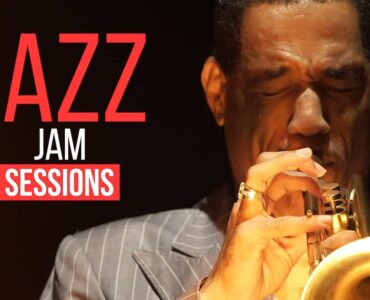It is almost beyond stating the obvious to say that making your living as a musician is hard. However, it is still far from impossible.
In this blog, we’ll detail a few extra ways to supplement your income as a musician, whether you are looking to make the jump to full-time, or just to bring in some extra cash, to make for a more comfortable living situation.
For many people (usually on other career paths) being a full time musician is sometimes almost incomprehensible, and can invite questions like “okay, but really, how do you really make money?” or “so you’re trying to be a rockstar?”
However, there are many full-time music roles that provide enough of an income to make a living from. This can include playing in a popular function band, teaching music in a school or working for a large record company.
That said, you will probably stand more chance of solely making your living from music if you have a portfolio career, that comprises of multiple roles. Below, we’ll give a general overview of ten possible ways to help supplement your income, using the skills that you have as a musician…
1) Depping
If you depend on regularly performing live for your income, you’ll realise how important it is for all the members of your band to maximise their availability, especially at weekends. After all, if one member of the group is unavailable, then the entire band cannot perform… Or can they?
Many function bands have a roster of local “deps” (the term probably meaning “deputy” or to deputise the role) that can fill in for a member of the band at a moment’s notice, in case of illness or emergency. Generally, they will play in other bands that have a similar repertoire or just regularly go out as a musical gun-for-hire.
If you play in a function band, chances are most popular material of the moment won’t be new to you, and so making a bit of extra money as a dep won’t be too difficult. Try joining online musical communities like UK Musicians for gigs or Dep Musicians in UK.

2) Private teaching
One of the most common side gigs that a musician is likely to have is teaching their instrument in private lessons. This can take many forms; some musicians like to teach from home and organise their own schedule, as well as promoting themselves locally to source students. Others will find work through an organised structure like a local music school or service.
Once you decide to start teaching, promoting yourself through social media (and even through word of mouth) can be a great place to start sourcing students. You can also learn more by visiting the UK Music Teachers group or reading our complete guide for music teachers.
3) Peripatetic teaching
If you have slightly more time to commit to your next role, then peripatetic teaching might be for you. The difference between this and private teaching is that your hours will not be scheduled yourself, but you could potentially earn more money, with more job security. You’ll also not have the responsibility of sourcing students yourself. Usually, you’ll be employed by the local council, as a teacher that goes into various schools to deliver instrument or vocal lessons. Regularly check your local council’s website for more information.

4) Guest lecturing
Arguably quite a difficult role to get into, if you have considerable experience in the music industry, it might be possible for you to get a job guest lecturing at a university. These positions are usually well paid, either being salaried or on a pretty reasonable hourly rate. The subjects you might have to cover will vary, so it’s important that you have extensive knowledge of your instrument, a comprehensive knowledge of music theory, and the music industry on the whole. Look up your local university’s music department and regularly check for vacancies.
5) Diversify your existing act
If you’re already in a successful band, then one way you can maximise your income is by diversifying what you offer to clients. For example, if you’re an established wedding band, then an additional package offering an acoustic act for the daytime, or perhaps even a late-night DJ playlist, can help maximise the earning potential from bookings. Similarly (if your group is okay with it) you might also offer alternate line ups, to go after other gigs.
Look up similar acts to yours, and see what they are offering. If you work with any agencies, then they can offer advice on latest popular trends. You can also find some information on the Last Minute Musicians Blog.

6) Instrument repairs
If you’re particularly passionate about your chosen instrument, you may have picked up the skills and knowledge over the course of your musical career to be able to repair and maintain them properly. If desired, this can be translated into an excellent side business, repairing and maintaining the gear of your colleagues! Try speaking to your local music store, and seeing they have any luthier work available, or just market yourself privately to colleagues you know, and on social media.

7) Producing or engineering
The job title “producer” is something of an ambiguous one, and can mean different things, depending on the context. In the music industry, when we refer to a producer, we usually mean someone who offers creative input and advice on the creative aspects of a recording. This can be everything from deciding on the microphones used to record a specific instrument, to changing certain parts or melodies in the arrangement.
To become a producer, you will need to have a proven portfolio of work and a great studio space to work from, whether your own or hired. Start working with local bands, and learn as much as you can by speaking to other producers and perhaps even trying to get experience assisting at sessions in local studios.
8) Promoting events
Chances are, if you are already heavily involved with your local music scene, you will have come across numerous other acts that you’ve really liked and enjoy the music of, be they tribute bands, cover bands or bands playing original music. If this is the case, you can utilise this knowledge to put on events in a local venue, and make money from ticket sales for both the venue, act and yourself.
Speak to local music venues about how you would go about putting on a night there, and what kind of shows generally do well.

9) Live sound, lighting and other crew roles
Whether you received your training from an academic course, or simply built up a great technical knowledge by doing sound for your own band on the road, many venues, bands and companies are in search of experienced live sound engineers, lighting engineers and other crew. Try looking at the jobs section of your local theatres or music venues, or looking into jobs with events companies. If you have your own equipment, you could even offer your services to local bands (making sure your equipment has been safety checked, and you are fully insured).
However, it’s important to keep in mind that if you work for an events company, then you might not always end up working at music-specific shows. Sometimes you might end up crewing corporate events or something similar.

10) Freelance admin work
If you enjoy, or have developed an aptitude for, the administration side of, say, booking shows, then you may be interested in some freelance work for for some kind of music development service, record label or studio.
While it might not be the most exciting job role you’ll ever have, if your IT skills are up to scratch, there are sometimes positions available. For example, if your graphic design skills are good, then you may well be asked by local venues to help design posters. Perhaps you might be contracted to spend a couple of hours working on copy for a PR agency or distribution company. Keeping an eye on freelance work jobs sites can help you pick up some extra income in roles like this.
Do you have an additional source of income as a musician? How do you maximise your earning potential? Leave your suggestions in the comments below…




















